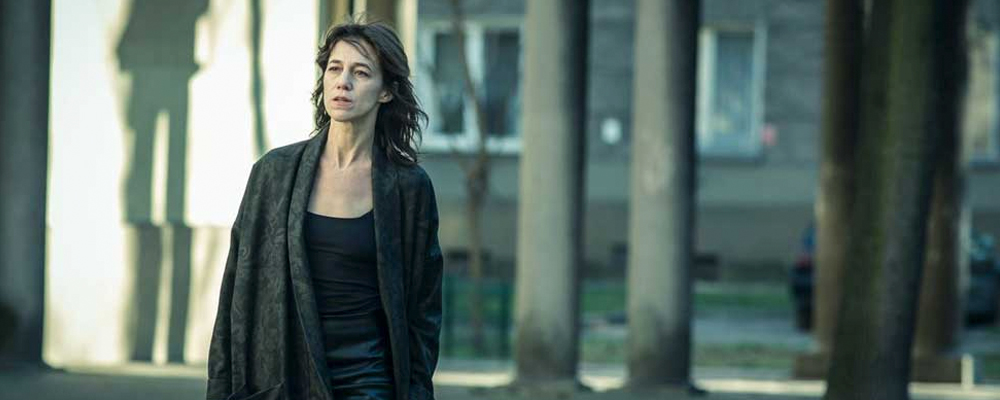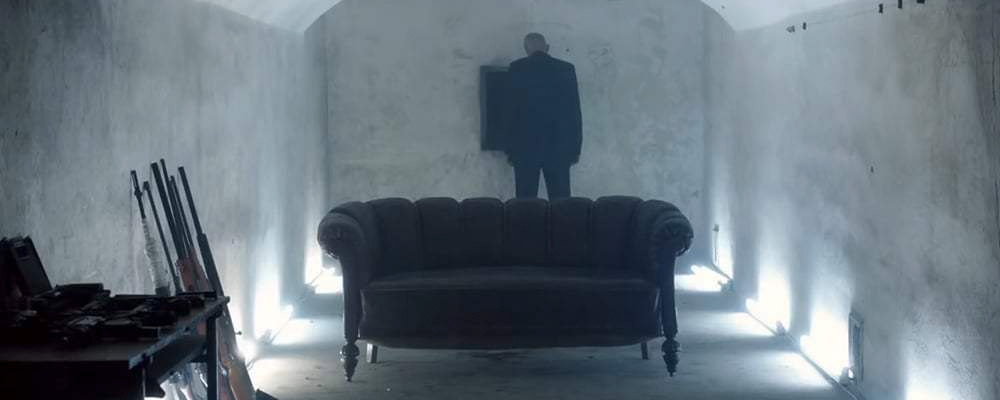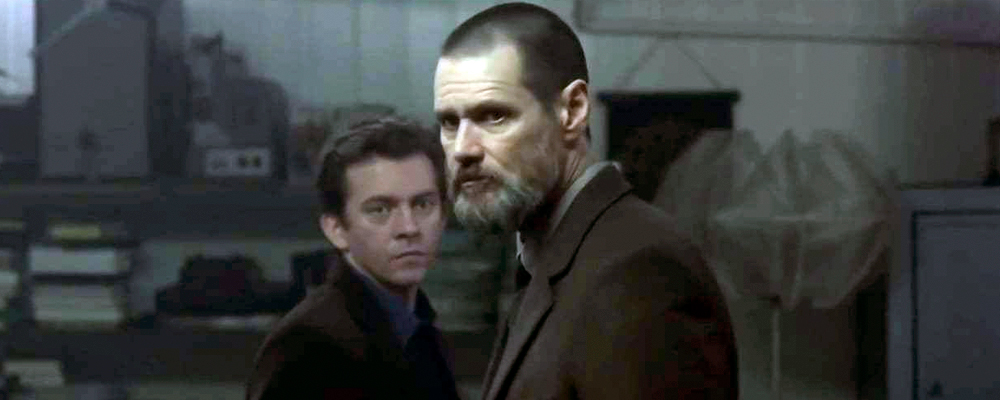Jim Carrey’s Somber Performance Stands out in ‘Dark Crimes’
Alci Rengifo
Dreary and somberly, “Dark Crimes” moves along like a funeral procession with Jim Carrey at the lead. It is Carrey who becomes the interesting focus of this otherwise meandering film. Here the actor breaks from his usual onscreen persona, completely shedding any hint of comedy. Some actors are so brilliant at being funny that we are startled to see them become absolutely serious and edgy. In “Dark Crimes” one can sense Carrey possibly channeling some of his recent moods and experiences into the role, evoking sorrow and an ominous dread.
Set in Poland, the film stars Carrey as Tadek, a detective attempting to solve the murder of a businessman. His leads are slim until he begins looking into the works of a rather sadist author named Kozlow (Marton Csokas), who specializes in writing the kinds of novels where sexual torture is narrated with a pretentious tone. Tadek is convinced the torture porn in Kozlow’s novels match the way in which the businessman was killed. Obsessed with the case, Tadek begins trailing Kozlow and his wife, Kasia (Charlotte Gainsbourg). It is soon obvious that these individuals have been involved with underground sex clubs specializing in bondage and orgiastic get-togethers. Kozlow enjoys flaunting his sense of perversion and gets into verbal stand offs with Tadek. But as the detective gets closer to the truth of the case, he begins to uncover more disturbing layers leading to unexpected places.
As a detective film “Dark Crimes” has little in terms of a detective narrative. The film opens with a rowdy orgy in the basement of a building, as men in black shirts cavort with gorgeous, naked blondes. With such an introduction director Alexandros Avranas appears to set us up for quite the gothic journey into the corrupt underbelly of society. But the movie’s key flaw is that it becomes so enamored with trying to be dreary that the story never generates a reason for us, or even Tadek to become invested. There has to be a spark, or a burning question or personal connection to make a character become so fanatical in their pursuits. In Joel Schumacher’s “8MM,” Nicolas Cage plays a detective obsessed with finding the men who killed a girl in a snuff film. There is a clear, powerful reason there for a detective to dive into such a dark, unseemly world. In “Dark Crimes” Tadek becomes a crusader over a dead businessman for no reason other than he is a detective in need of a crime to solve, so the film may have purpose. He becomes lured by Kasia, but little is developed between these characters. Their sudden, violent sex scene feels like a jarringly random development tossed into the narrative. Gainsbourg is no stranger to intense, edgy roles, especially in her work with Lars Von Trier. But here she’s not given a role with proper depth or space.
What stands out in “Dark Crimes” is without a doubt Jim Carrey’s performance. Like Robin Williams in “One Hour Photo,” Carrey undergoes a full transformation into a disturbed, quietly violent personality. We watch him wishing he would have a stronger script, because he is never less than convincing in the role. Carrey has done excellent dramatic roles before, especially in movies like “Man on the Moon,” “The Truman Show” and the highly underrated “The Majestic.” But even in those roles the brilliant comic would somehow break through, bringing the familiar Carrey smile or antics. In “Dark Crimes” he fully dissolves into a somber profile. It may not be too far-fetched to guess that Carrey has channeled some of his recent experiences and tragedies into the role. His best moment comes when he walks into a room and finds a murdered character and weeps. Interestingly enough the moment is one of those plot developments that comes out of nowhere, but Carrey breaks down with shattering realism.
The rest of the cast is a strong spread that can shine while delivering lines lacking in subtly or ambiguity. The perfect example is Marton Csokas as Kozlow. He becomes a perverse, ferocious instigator, looking at Tadek with mocking eyes and mischievous gestures. Much of his dialogue is too on the nose, but Csokas knows how to play the part devilishly well. The interrogation scenes between Csokas and Carrey are the only moments with actual tension in the movie. Most of the film consists of quiet, meandering shots of Carrey in an office, or at home or driving. The cold, wet environment of Poland need not make for such somber filmmaking. A recent thriller from Iceland, “The Oath,” finds a way to create riveting suspense in that country’s perpetually icy, cloudy vistas. If “Dark Crimes” wanted to be more about atmosphere then it should still strive to be compelling. If we don’t care about what’s happening, then the movie becomes sadness without catharsis. There’s little build up to the story’s conclusions. When a character gets framed and an official tanning himself tells Tadek the case is closed no matter what, there’s no juice to any of it. The ending is meant to be a shocker of a twist, but it was almost a relief it was all over. You’re not shocked by the poisoned drink, you’re grateful for it.
“Dark Crimes” is a film that doesn’t work with a performance that actually works pretty well. Jim Carrey becomes a good actor looking for a better movie. His transformation is probably the best reason to give it a chance. But otherwise this movie is a case that closes all too soon.
“Dark Crimes” opens May 11 in select theaters and is available to order on DirectTV.




